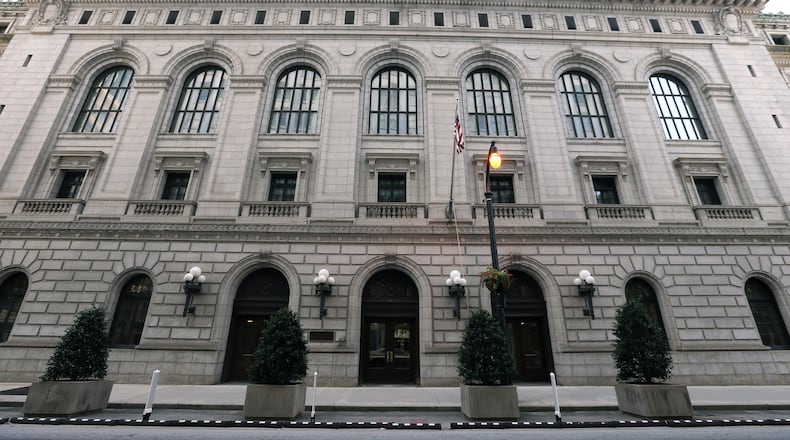President Donald Trump has a new seat to fill on the influential federal appeals court in Atlanta.
This week, Judge Gerald Tjoflat, the longest-serving active federal appeals court judge in U.S. history, told the president he’s ready to take senior status. Tjoflat will become a senior judge, with a reduced caseload, when his successor is confirmed by the Senate and sworn into office.
“One of these days the old engine is going to quit,” a chuckling Tjoflat said in a telephone interview from his chambers in Jacksonville, Fla. “It’s time.”
As for his many decades on the bench, the 89-year-old Tjoflat said, “I’ve absolutely loved it.”
Tjoflat has presided as a judge for more than 50 years, first on the state court and U.S. District Court benches in Florida. President Gerald Ford then nominated Tjoflat to the appellate court bench, where he began serving in December 1975.
That was six years before the appeals court split into two separate circuits. The 11th U.S. Circuit Court of Appeals is now headquartered in Atlanta. The other appeals court is in New Orleans.
This will be Trump's fourth seat to fill on the 11th Circuit, which is allotted 12 judges and decides cases out of Georgia, Florida and Alabama.
So far, Trump has filled two Georgia seats with former Georgia Supreme Court Justice Britt Grant and former Georgia Court of Appeals Judge Elizabeth Branch. Trump filled an Alabama seat with former state Solicitor General Kevin Newsom.
Credit: Screenshot
Credit: Screenshot
The 11th Circuit sets precedents in the tri-state circuit on some of the contentious issues of the day, such as abortion, immigration, the death penalty, gay rights and voting rights.
The court is considered one of the nation's most conservative when deciding cases on discrimination and harassment in the workplace. Its precedents have made it extremely difficult for plaintiffs to prevail in hostile work environment claims, so much so that most of the accusations get dismissed before they go to trial.
About the Author
The Latest
Featured





